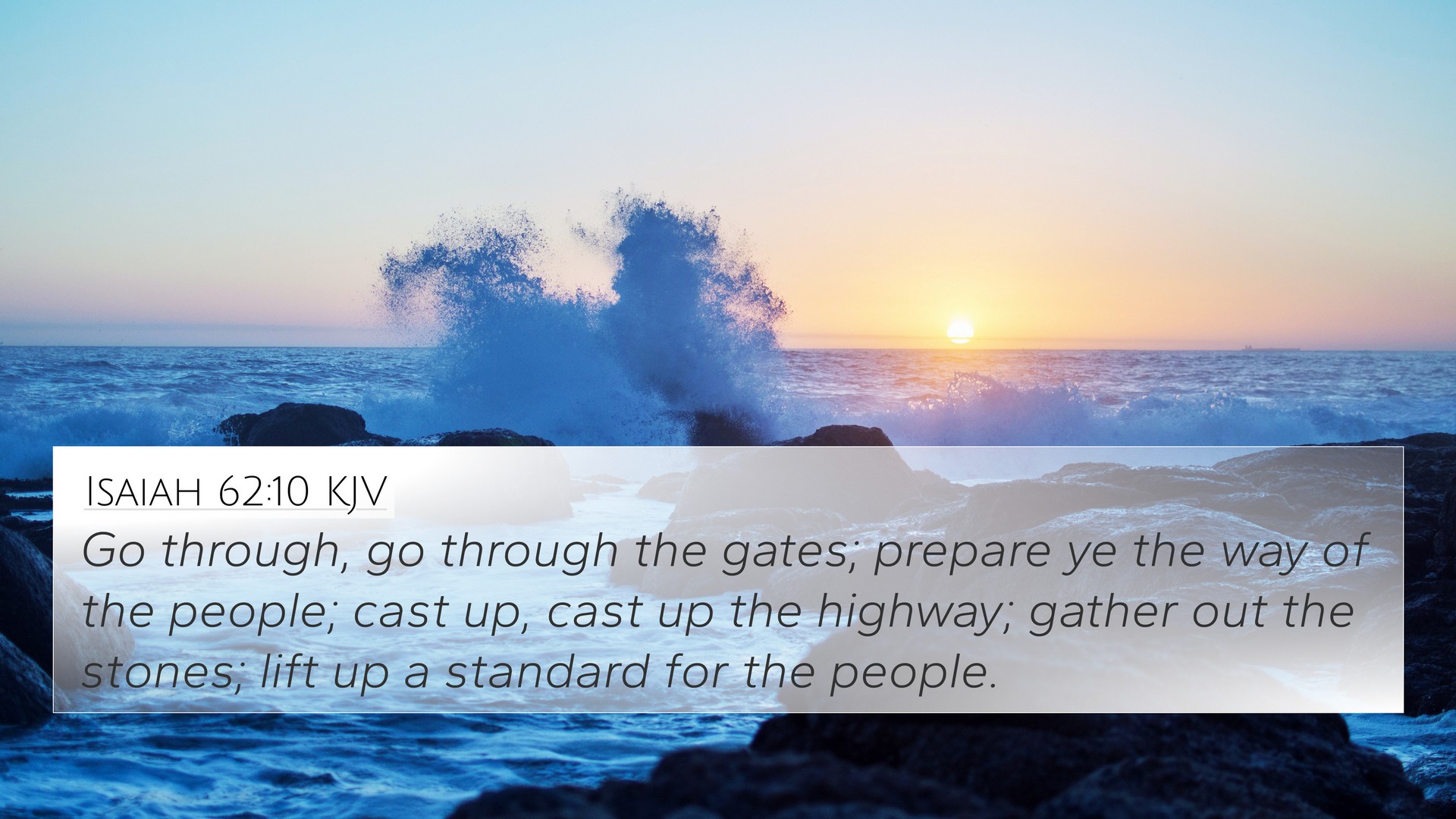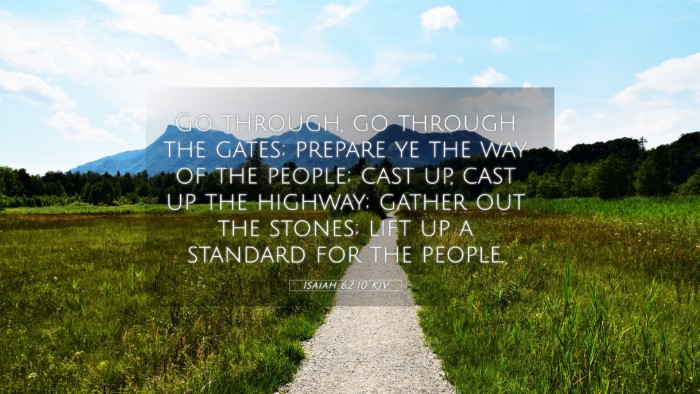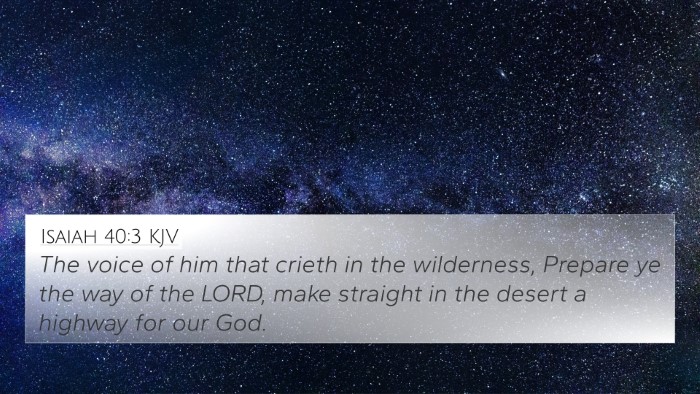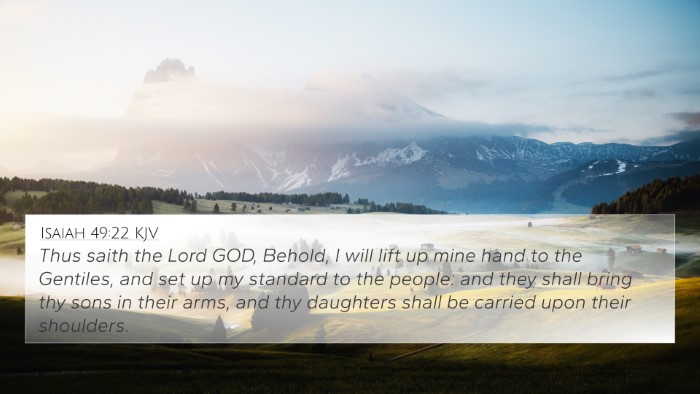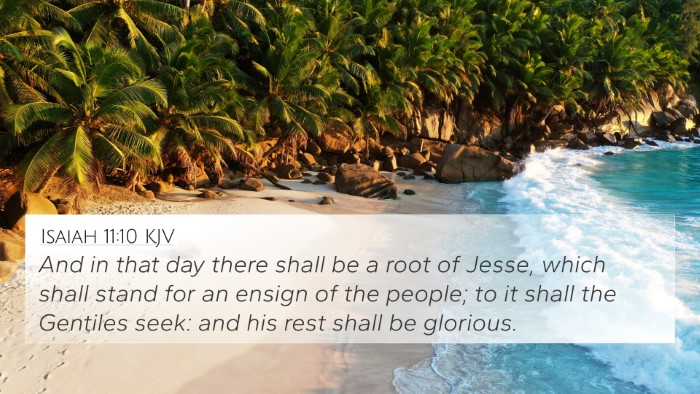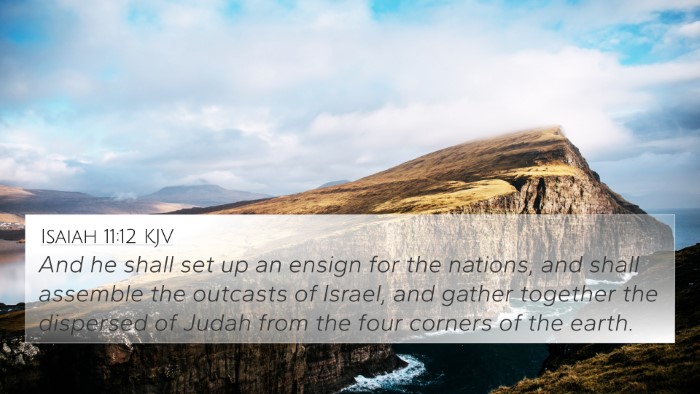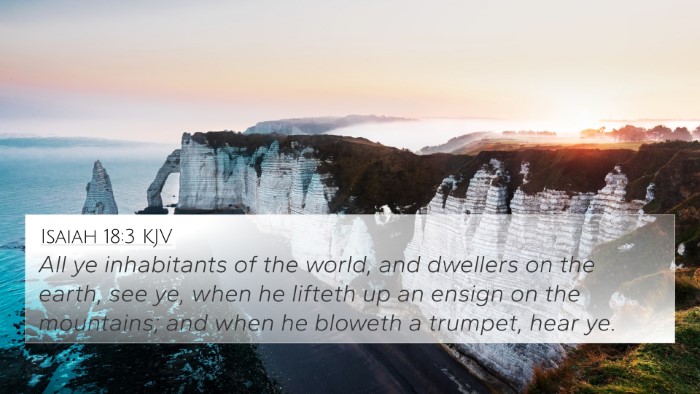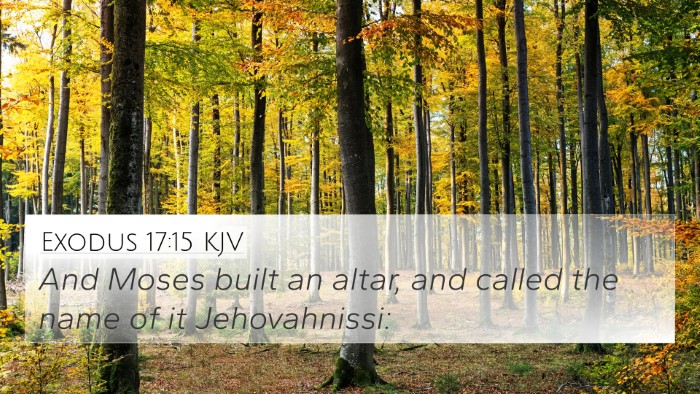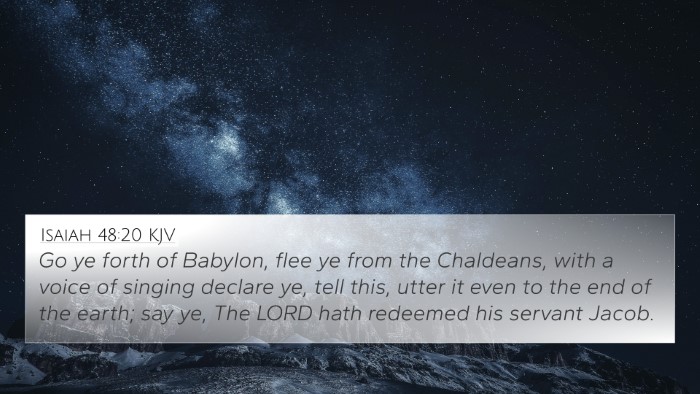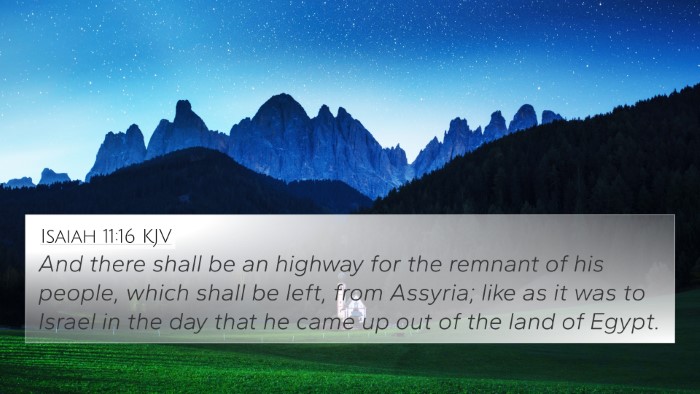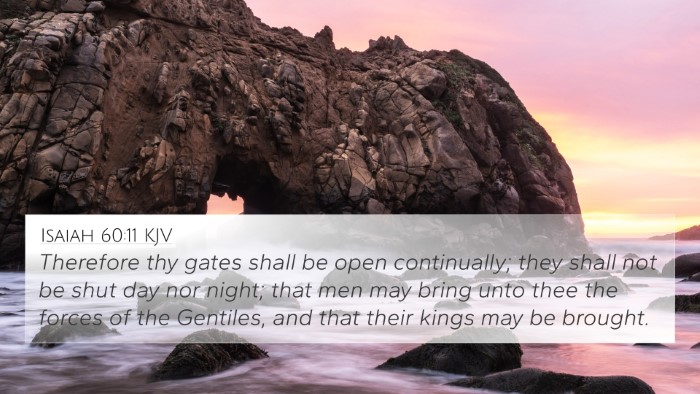Understanding Isaiah 62:10: A Comprehensive Commentary
Isaiah 62:10: "Go through, go through the gates; prepare ye the way of the people; cast up, cast up the highway; gather out the stones; lift up a standard for the people."
This verse is rich with meaning and offers profound insights into the call for preparation and the establishment of a new order for God's people. Below is a summarized interpretation based on insights from various public domain commentaries, including those by Matthew Henry, Albert Barnes, and Adam Clarke.
Verse Meaning and Context
The backdrop of Isaiah 62 revolves around the prophecy concerning Zion, presenting a vision of restoration and glory for God's people. This particular verse serves as an exhortation, urging the faithful to prepare a pathway for the return of the exiled Israelites and to establish a significant route that leads towards salvation and divine favor.
Key Insights from Commentaries
-
Matthew Henry's Commentary
Henry emphasizes the urgency and necessity of preparation. The exhortation to "go through the gates" highlights the need for a collective effort in creating a way for those returning, both physically and spiritually. The call to gather stones signifies removing obstacles in the path of redemption.
-
Albert Barnes' Notes
Barnes interprets this verse as a directive meant for leaders and guides among the people, who are responsible for clearing the path for both the returning exiles and for the coming of God's kingdom. He points out that lifting a standard symbolizes rallying the people around God's purpose.
-
Adam Clarke's Commentary
Clarke notes that the metaphor of "highway" reflects the portrayal of a clear and open way to God. He suggests that the preparations include moral and spiritual readiness, reinforcing the idea of an active role that believers play in making the path straight for those seeking the Lord.
Thematic Connections and Cross-References
Understanding Isaiah 62:10 requires recognizing its connections with other scriptures that reinforce the themes of preparation, restoration, and divine guidance. Here are several Bible verses that relate to this verse:
- Isaiah 40:3: "The voice of him that crieth in the wilderness, Prepare ye the way of the LORD; make straight in the desert a highway for our God."
- Matthew 3:3: "For this is he that was spoken of by the prophet Isaiah, saying, The voice of one crying in the wilderness, Prepare ye the way of the Lord, make his paths straight."
- Luke 3:4: "As it is written in the book of the words of Esaias the prophet, saying, The voice of one crying in the wilderness, Prepare ye the way of the Lord, make his paths straight."
- John 14:6: "Jesus saith unto him, I am the way, the truth, and the life: no man cometh unto the Father, but by me."
- Romans 10:15: "And how shall they preach, except they be sent? as it is written, How beautiful are the feet of them that preach the gospel of peace and bring glad tidings of good things!"
- Proverbs 4:26: "Ponder the path of thy feet, and let all thy ways be established."
- Philippians 3:20: "For our conversation is in heaven; from whence also we look for the Savior, the Lord Jesus Christ."
Practical Applications of the Verse
For believers, Isaiah 62:10 serves as a reminder of the importance of being active participants in God's work. This involves:
- Clearing the Path: Removing spiritual and emotional obstacles in our lives and the lives of others.
- Preparing for Divine Encounters: Actively engaging in practices that facilitate an awareness of God’s presence.
- Rallying Together: Uniting with fellow believers to create a supportive community that encourages spiritual growth.
Cross-Referencing and Deeper Study
To fully appreciate the depth of Isaiah 62:10, one might engage in cross-referencing Bible texts that connect themes of preparation and restoration throughout Scripture. Utilizing tools for Bible cross-referencing and Bible concordances can lead to a more enriched understanding of God’s word.
Conclusion
In summary, Isaiah 62:10 presents a powerful call to action for both individuals and communities to prepare the way for God's redemptive work. This scripture invites readers to engage in an ongoing dialogue across the Bible, thereby fostering a greater understanding of God's plans and purposes through the examination of related verses and themes.
